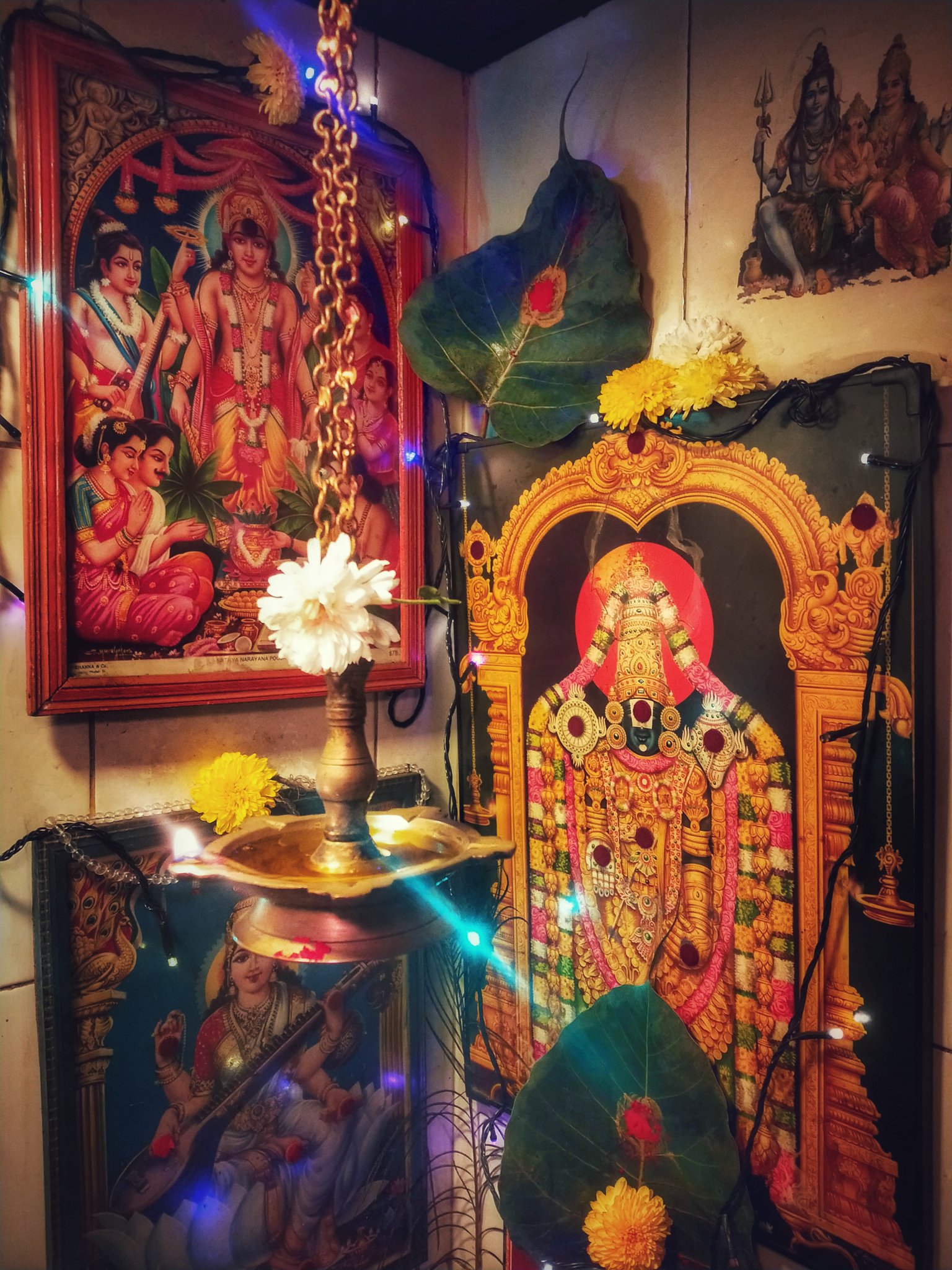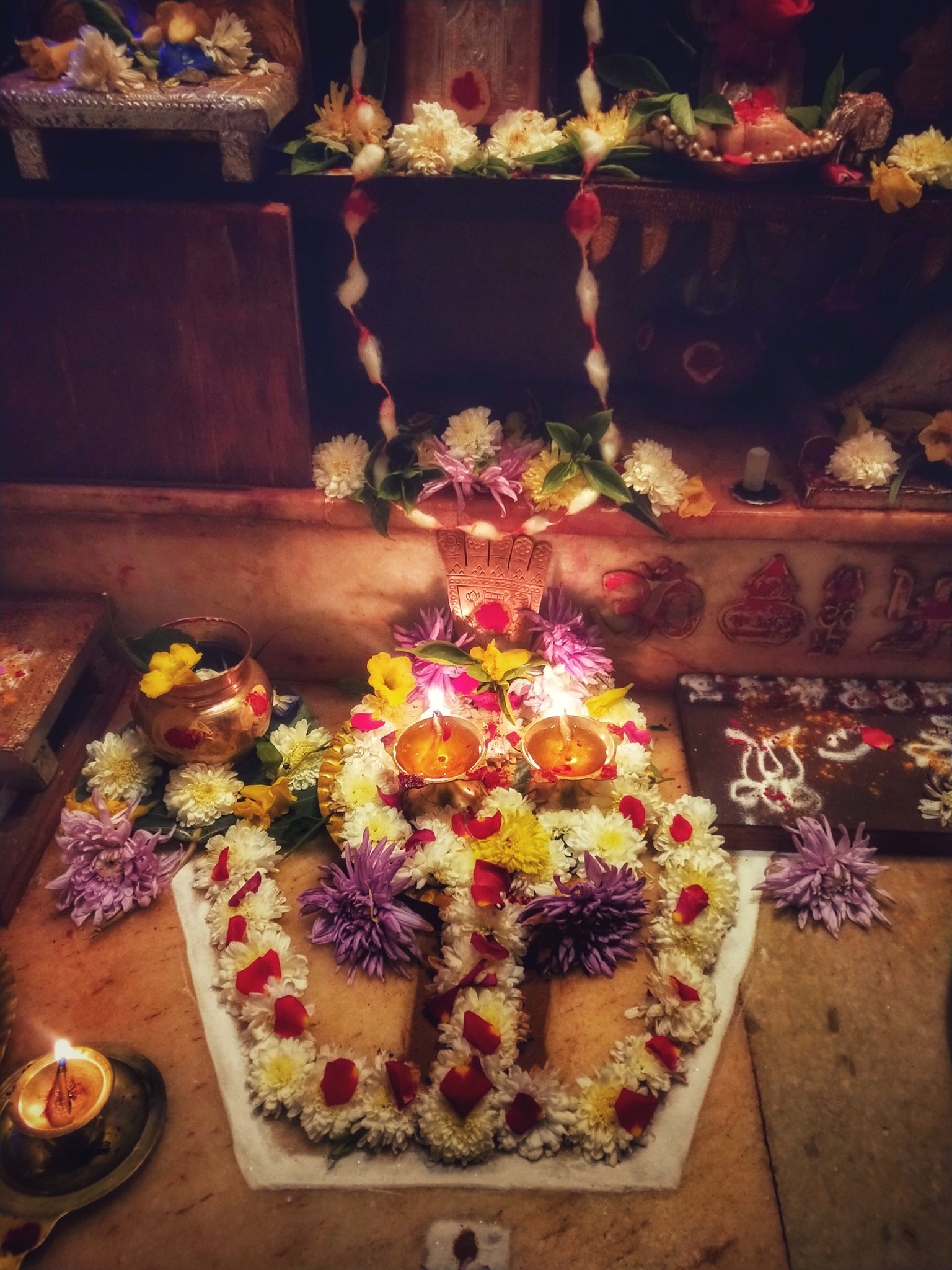The significance & benefits of keeping a fast on Ekadasi is explained in the Uttara Khanda of the Padma Purana. On Ekadasi the mind must be firmly fixated on Narayana only.
 Before narrating the origins of Ekadasi, Shri Krishna explains to Yudhisthira the benefits to be had by keeping a fast on Ekadasi. Krishna says the one who keeps a fast on Ekadasi accrues more punya than performing the Ashvamedha.Krishna says keeping a fast on Ekadasi is 100 times more meritorious than giving Gau-dhana to a Brahmana who has mastered the Vedas. Krishna says those who fast on the Ekadasi day are equal to those in whose bodies live the three deities Brahma, Vishnu & Maheshwara.
Before narrating the origins of Ekadasi, Shri Krishna explains to Yudhisthira the benefits to be had by keeping a fast on Ekadasi. Krishna says the one who keeps a fast on Ekadasi accrues more punya than performing the Ashvamedha.Krishna says keeping a fast on Ekadasi is 100 times more meritorious than giving Gau-dhana to a Brahmana who has mastered the Vedas. Krishna says those who fast on the Ekadasi day are equal to those in whose bodies live the three deities Brahma, Vishnu & Maheshwara.To Yudhisthira's query on the origins of Ekadasi, Shri Krishna goes on to narrate the story of the extremely powerful asura Murasura, in whose slaying lies the origins of Ekadasi. Mura who lived during the Satya yuga had taken away by force Indra's abode.
Indra turns to Lord Shiva for help. Shiva in turn directs Indra to approach the "Eagle-bannered"(गरुडध्वजः) god i.e. Maha Vishnu. Indra promptly approaches Vishnu as advised.
In the above Shlokas, Indra praises Vishnu to the hilt. Addresses Vishnu by his many names like मधुसूदन, भक्तवत्सल, पुंडरीकाक्ष, जगन्नाथ while describing to him the atrocities committed by Mura.

Indra then proceeds to list out the atrocities committed by Mura, the son of asura Talajangnha who lived in a place called Candravati. Mura is accused of forcibly expelling all Devas from Devaloka & installing in their place Mura's own versions of Indra, Vayu, Agni & Varuna.
Vishnu assures Indra that he shall slay the evil asura. He along with other Devas immediately set out to Candravati where Mura was. Except Maha Vishnu all other Devas were defeated again. They all flee in 10 different directions while Vishnu stood alone to take Mura head on.
Vishnu wielding the Sudarshana Chakra kills the whole of the army of asuras of Mura. Everyone except Mura is defeated. Then a direct battle between Vishnu & Mura ensues. This battle is described as having lasted for a 1000 years. With no end in sight Vishnu devises a plan.Vishnu goes to बदरिकाश्रमम्/Badarikashrama (Badrinath). While there he enters a cave called सिंहावती/Simhavati. In there Vishnu goes to sleep. Meanwhile Mura bent on killing Vishnu pursues him to this cave.
 |
| Ekadasi emerging out of a sleeping Maha Vishnu to slay Murasura. |
Out of the sleeping Maha Vishnu emerges a divine feminine form. She is described as very beautiful & auspicious, wielding all kinds of weapons. At once she slays Murasura by burning him down to ashes.
Meanwhile Maha Vishnu wakes from his sleep & is amazed to find out that Mura has been vanquished. Vishnu says whoever has killed Mura has committed a great deed & enquirers who had done this. The divine feminine form informs to Vishnu that it was her who slayed Mura.
This divine feminine form that emerged out of the sleeping Maha Vishnu came to be known as Ekadasi. The Delighted & pleased Maha Vishnu asks what boon she'd like for having performed this great deed of slaying the evil asura Mura.
Devi Ekadasi makes just one wish. She says "O Vishnu, give wealth, righteousness and moksha to your devotee who observes a उपवासं (fast) on the day sacred to me" (i.e Ekadasi).
Maha Vishnu gladly grants Ekadasi her wish. There are 25 Ekadasi Vratas mentioned in the Padma Purana. The foremost of them being Mokshada Ekadasi which is observed during Shukla Paksha of the Margashirsha maasa.
Ekadasi is all about keeping our thoughts firmly fixed on Shriman Narayana & following the procedure of Vrata diligently with devotion.
Reference:
Padma purana



















